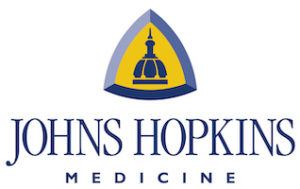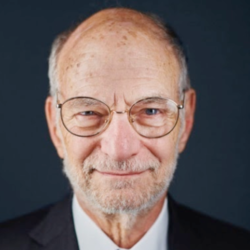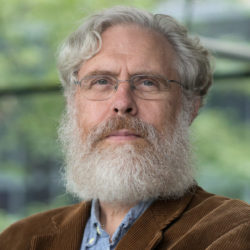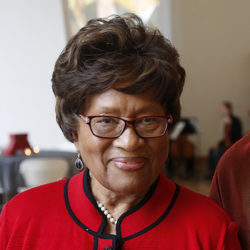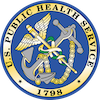Myrtle Potter
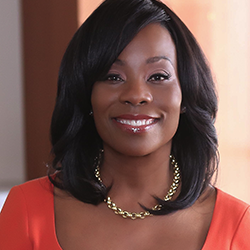

Myrtle Potter
FORTUNE’s Top 50 Most Powerful Women in Business
Black Health Magazine’s 25 Most Influential African Americans in Healthcare
Glamour Magazine’s Everyday Icon
Wall Street Journal’s 50 Women to Watch.
Myrtle Potter is the CEO of Sumitovant Biopharma, Inc., a global biopharmaceutical company focused on rapidly developing innovative medicines. Before she joined Sumitovant, Myrtle served as Vant Operating Chair at Roivant (2018-2019). Prior to Roviant, she was CEO of Myrtle Potter & Company, a healthcare advisory firm she started in 2005. From 2000 to 2005, Potter was COO and later President of Genentech, where she achieved record sales and earnings growth and launched seven novel therapies.
During her tenure, she co-chaired the Product Portfolio Committee, which made all asset investment and prioritization decisions for Genentech’s drug pipeline, making it the most valuable pipeline in the world at that time. Prior to Genentech, she was President of Bristol-Myers Squibb’s U.S. cardiovascular and metabolic business, where she oversaw an operation of 3,500 people and which launched numerous multi-billion-dollar medicines. Potter began her biopharmaceutical career at Merck, where she started the company Astra-Merck, Inc., which, through a series of transactions, became AstraZeneca.
Potter is a graduate of the University of Chicago and serves on the university’s board of trustees. She also serves on the boards of Liberty Mutual Insurance Group, Myovant Sciences (Chairwoman) and Urovant Sciences (Chairwoman). She has previously served on the boards of Amazon, Express Scripts, Medco Health Solutions, and Rite Aid.
Thomas H. Marshburn, M.D.Emergency Room Physician, NASA Astronaut, and AquanautDr. Marshburn was selected by NASA in 2004. He holds a Bachelor of Science in Physics from Davidson College, North Carolina; a Masters in Engineering Physics from the University of Virginia; a Doctorate of Medicine from Wake Forest University; and a Masters in Medical Science from the University of Texas Medical Branch. The North Carolina native is a veteran of two spaceflights, STS-127 and Expedition 34/35.Before […]
Sameer Nagda, M.D., M.B.A.2021 and 2016, United States Olympic Women’s Soccer Team – Team Physician2019 FIFA Women’s World Cup Champion, Team USA – Team PhysicianFellowship Trained Sports Medicine Surgeon – Knee, Shoulder, ElbowDr. Sameer Nagda is a Sports Medicine and shoulder specialist at the Anderson Clinic, and an Assistant Professor of Clinical Orthopaedic Surgery at Georgetown University School of Medicine. He evaluates and surgically treats problems of the knee, shoulder, and elbow. He has particular […]
Richard Sacra, M.D.Humanitarian Physician and Ebola SurvivorDr. Sacra has served as a medical missionary in Liberia, West Africa, since 1995. His many contributions include caring for patients; training nurses, medical students and interns; leadership development; and helping to increase the hospital’s response to HIV and AIDS, including starting a counselling program for patients living with the virus. He is also helping to develop a Christian Family Practice Residency training program for Liberian doctors. Despite his […]
Pardis Sabeti, M.D., Ph.D.Associate Professor, Harvard School of Public Health InstituteMember of the Broad Institute of Harvard and MITDr. Sabeti is a computational geneticist who has created some of the most widely used algorithms to mine genomes for instances of human adaptation and created powerful molecular tools to clarify their biology. In 2014, she was named a TIME magazine “Person of the Year” as an Ebola fighter and in 2015 was one of TIME’s 100 […]

